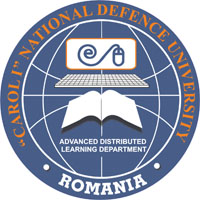DOMINANT VOCATIONAL PROFILE IDENTIFIED AMONG STUDENTS OF POLYTECHNICS UNIVERSITY, BUCHAREST
DOMINANT VOCATIONAL PROFILE IDENTIFIED AMONG STUDENTS OF POLYTECHNICS UNIVERSITY, BUCHAREST
Author(s): Andra CRĂCIUN, Barbara CRĂCIUNSubject(s): Education
Published by: Carol I National Defence University Publishing House
Keywords: vocational profile; professional counseling; students potential
Summary/Abstract: The present paper proposes to offer a detailed presentation of the vocational profile identified among students of Polytechnics University of Bucharest, Romania. Having contact with the students of this University we have identified their need of getting to know themselves but also to identify those activities for which they might be most suitable for. We consider that it is vital within the contact with students to draw their vocational profiles as basis of a constructive collaboration and support needed for them to find potential activities that fit their interests and potential. We emphasize that identifying the vocational profile of students we come in contact with as professors or trainers facilitates obtaining optimal results for both sides; therefore, students benefit from educational programs adapted to their needs and developmental potential (sighting personal aspects such as aptitudes, temperamental foundation to vocational aspects including interests, hobbies, activities in which they seem to be naturally productive in) - a way in which they become more likely to obtain both personal satisfactions and easy to identify, consistent results in their activities. As for professors, having to know the vocational profile of students they collaborate with allows them to adapt faster in relationship with them and to potentiate their own personal behavior according to their audience. We may assert that identifying such vocational profiles among students will gradually increase their satisfaction towards the educational environment along with the optimism and positive appraisal towards future professional outcome. In this regard, we propose a quantitative instrument elaborated in order to support our objective and which we consider to be suitable and adaptable for other University domains.
Journal: Conference proceedings of »eLearning and Software for Education« (eLSE)
- Issue Year: 11/2015
- Issue No: 03
- Page Range: 160-164
- Page Count: 5

